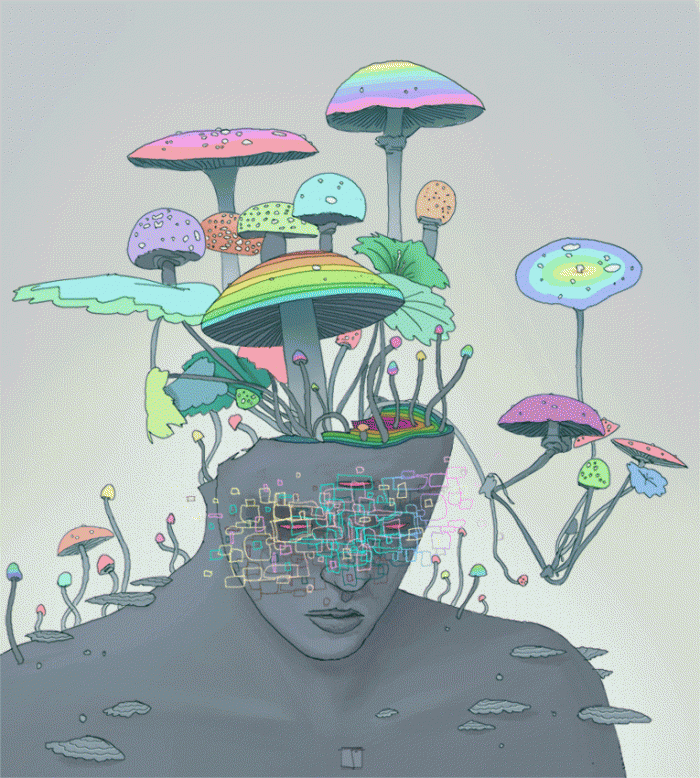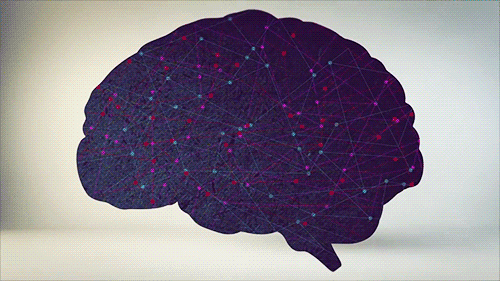How Does LSD Affect Language Processing?
It probably isn’t news to some of us that certain recreational drugs are thought to inspire our creativity, removing those inhibitions we have that prevent us from trying something new—and in doing so setting our inner artists free. And with numerous musicians waxing lyrical about the contribution these drugs have made to their own creative efforts, it seems that avocation of drug use to make us creative and help us communicate in different ways is becoming a common thing. Here not to encourage drug use but instead to provide you with an interesting read, take a look as we evaluate whether there may be any truth to it and see whether language processing may be affected by LSD.

GIF via Giphy
The theory
Lysergic acid diethylamide, better known as LSD or acid, is a psychedelic drug that is allegedly responsible for things like numerous Beatles albums, and much of Apple’s innovations. Those who praise LSD for its ability to unleash our inner artists say that the drug creates vivid colours and patterns in our minds, producing ideas we could never conceive of without it.
The practice
A joint study carried out by the University of Kaiserslautern in Germany and the Imperial College London has shown that LSD strengthens the brain’s language processing networks, which would suggest why this association we have between psychedelic drug use and creativity exists.
And while the sample of participants studied showed more mistakes in image identification when tested against those not using the drug, this led to imaginative answers when the known word couldn’t be retrieved. When we stumble over words without this drug use we tend to correct ourselves halfway through speaking; these participants didn’t, and effortlessly went on to come up with other descriptions.
In other words, this study suggests that psychedelic drugs like LSD open up our creativity by allowing our brains to find quicker and different connections to concepts and ideas already in our minds that we wouldn’t normally make. Making us more effective and freer communicators in whatever ways we choose to express ourselves.
Points to consider
The initial results of this study are interesting, although it must be pointed out that an incredibly small study sample was used to conduct the experiment. However, users of LSD and other psychedelic drugs have been telling us of their creative benefits for decades. So perhaps there is more truth to it, and all that is needed is more vigorous testing to prove that.
Since our personalities become set as adolescents, so do our paths of thought, which is why for some of us change is such a difficult thing to come to terms with. These psychedelic drugs may allow us to move away from that rigid mindset, and probably explains why the use of LSD and other similar drugs is synonymous with letting go, and freeing ourselves.

GIF via Giphy
Learning a new language? Check out our free placement test to see how your level measures up!
This study at Kaiserslautern also suggests that LSD could be put to use in psychotherapy, since its freeing of our thoughts might help a patient to access repressed memories. And while accessing those memories in a more relaxed state, perhaps dealing with the issues that arise because of them will be more comfortable and manageable.
Experiments with other psychedelic drugs like magic mushrooms have shown some reduction in the symptoms of mental illnesses like depression. Despite this, the stigma attached to drug use and the money needed to research its effectiveness thoroughly means LSD as a medical application is not currently on the healthcare horizon.

GIF via Giphy
What does this mean for language?
Well, aside from perhaps freeing us writers from writers block, or turning our brains into optimised thesauruses, LSD and its counterparts seem to allow us to think bigger, and make connections we normally wouldn’t. If the blocks and points of view we inflict on ourselves are pushed to one side, what language might we use to get our point across? How much easier would it be to say truthfully what is on our minds?
If LSD use expands our consciousness by increasing connectivity between networks in our brains that don’t normally interact, and therefore improves semantic processing, who is to say what other uses it might have in helping us understand the complex machine that is our brains? And how would this impact our ability to learn new skills, retain information, and so on? In theory, this drug could be nothing but good for us!
Caution first though, since the true effectiveness and even the side-effects of these drugs on our bodies and minds is not fully understood. More studies are needed using wider study samples, which is what the researchers in this particular study are looking to do next.
We will be interested to see what the outcome is and what the results will demonstrate about the way we process language. But for now, our creativity will have to be achieved in the old-fashioned way, through determination, talent and dedication!
